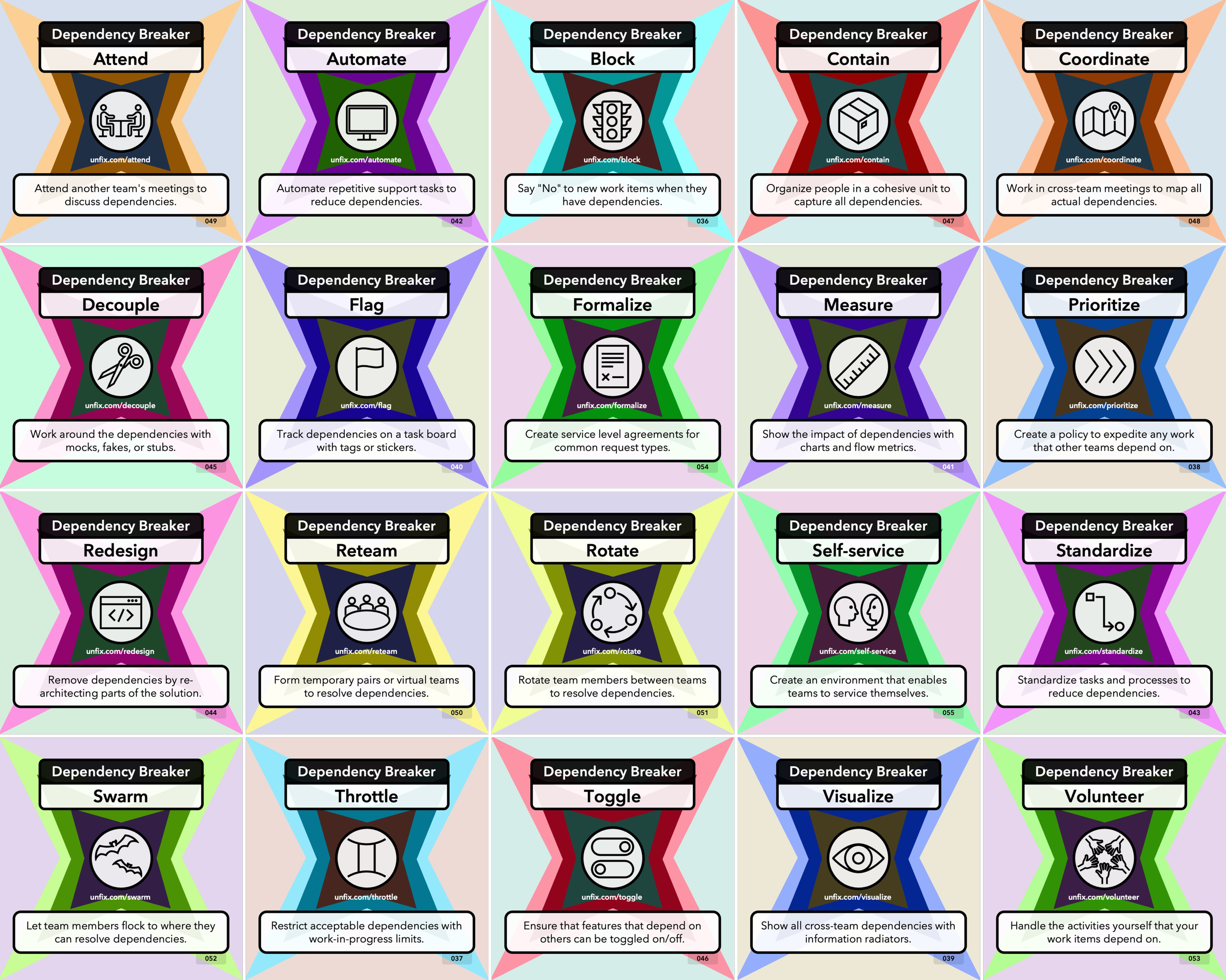Breaking Bad Dependencies (Not Good Ones)
Author: Jurgen Appelo
An autonomous, self-organizing Value Stream Crew is responsible for everything, from the moment they receive a user/customer signal to when they create value for someone. The idea of end-to-end responsibility is that nothing is blocked in this value stream.
But what does it mean to be truly autonomous?
Can agile teams really “break dependencies,” as some authors suggest?
Not always.
Autonomy is an illusion, and it’s impossible to break all dependencies. For a team to be “autonomous,” it needs an environment that helps them to be self-organizing and to evaluate their dependencies. The team needs its environment to offer them a workspace, communication tools, customers, a great organizational culture, and (most probably) some form of compensation. That’s not autonomous at all. That’s a whole lot of dependencies! But, like the air we breathe and the shared language we speak, they are valuable dependencies. Autonomy is nourished by dependence!
Autonomy is an illusion, and it’s impossible to break all dependencies.
However, the problem is that many dependencies are not valuable. Bad dependencies are things or situations that prevent a Value Stream Crew from discovering or delivering value to users and customers. Many dependencies are harmful to the flow of autonomous teams.
But how can teams minimize or eliminate these dependencies? What are the best strategies for reducing and breaking them? Fortunately, other authors have already accumulated a lot of wisdom around this topic in several blog posts:
“11 Strategies for Managing Dependencies Between Agile Squads” - Camin McCluskey
“Dependency Management Techniques” - Philip Rogers
“Dependencies Are Killing Your Agile Flow at Scale” - Ken Rubin
“17 Dependency Management Hacks to Improve Flow Efficiency” - Ian Carroll
I took the liberty to aggregate, condense, and categorize the advice into a handy list of 20 Dependency Breakers. You can discuss them, combine them, and try them out with your teams.
What is needed for a Value Stream Crew to deliver value should be within their span of control. If some of their work depends on other teams, people, or processes, they should do their best to reduce or break those dependencies.
But remember, some dependencies are desirable and even necessary. Without customers and suppliers depending on each other, we wouldn’t even have a working economy.

